Quobyte
Quobyte is an open-source distributed file system that provides scalable storage for containers, virtual machines, and bare metal servers. It allows building a fault-tolerant storage cluster out of commodity servers or cloud instances.

Quobyte: Open-Source Distributed File System
Scalable, fault-tolerant storage for containers, virtual machines, and bare metal servers with open-source distributed file system Quobyte
What is Quobyte?
Quobyte is an open-source software-based distributed file system that provides scalable and fault-tolerant storage for containers, virtual machines, and bare metal servers. It allows organizations to build a high-performance storage cluster out of commodity hardware like off-the-shelf servers or cloud instances.
Some key capabilities and benefits of Quobyte include:
- Scalability - Quobyte scales out to store petabytes of data across thousands of servers or instances.
- Flexibility - It works with a wide variety of workloads from Docker and Kubernetes to databases, media repositories and more.
- Resiliency - Quobyte replicates and stripes data across servers for high availability. It continues working despite server or network failures.
- Performance - By parallelizing I/O across many devices, Quobyte delivers high throughput and low latency for demanding workloads.
- Management - An intuitive web-based GUI and REST API simplifies storage management and monitoring across on-prem and cloud deployments.
Quobyte is implemented in C++ and Java and runs on Linux. Both commercial and community editions are available. It can be deployed on-premises on bare metal or on public clouds like AWS, Google Cloud and Azure.
Quobyte Features
Features
- Distributed file system
- Scalable storage
- Fault tolerance
- Unified namespace
- Replication and erasure coding
- Automatic load balancing
- API access
- Web-based management
Pricing
- Open Source
Pros
High scalability
High availability
Low cost using commodity hardware
Easy to manage
Integrates with Kubernetes
Open source
Cons
Less features than proprietary options
Limited adoption and community support
Not as performant as other distributed filesystems
Official Links
Reviews & Ratings
Login to ReviewThe Best Quobyte Alternatives
Top Network & Admin and Distributed File Systems and other similar apps like Quobyte
Ceph
Ceph is an open source, software-defined storage platform designed for scalability, reliability, and cost-effectiveness. Here are some key things to know about Ceph:Provides block, object, and file storage in one unified system - Ceph supports traditional block device storage as well as object storage and scale-out file storage, allowing one...
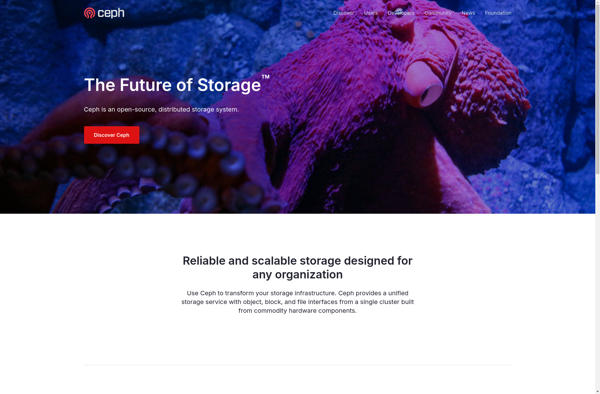
GlusterFS
GlusterFS is an open source, distributed file system designed to handle large data sets and high traffic workloads. It aggregates disk storage resources from multiple servers into a single global namespace that can scale out to store petabytes of data.Some key features of GlusterFS include:Linear scalability - GlusterFS utilizes a...

XtreemFS
XtreemFS is an open-source distributed file system designed specifically for high availability, scalability and performance to store and access files across clusters of commodity servers. It provides interfaces for POSIX and HTTP access, allowing existing applications to use XtreemFS without any changes.Some key features of XtreemFS include:Scales to thousands of...
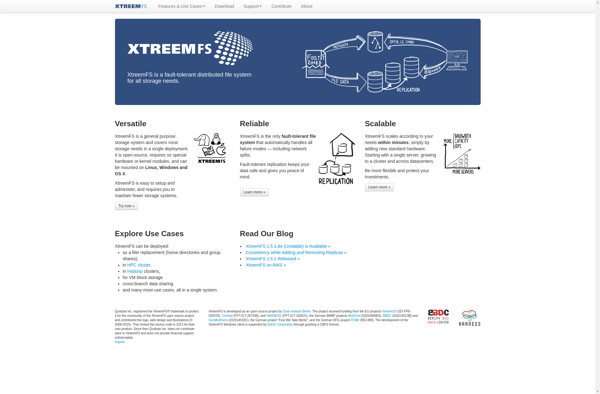
WekaFS
WekaFS is a parallel file system designed specifically to address the storage challenges of artificial intelligence, machine learning, and deep learning workloads. It delivers high performance and scalability for data-intensive workloads that access large numbers of small files.Key capabilities and benefits of WekaFS include:High throughput and IOPS specifically for small...

BeeGFS
BeeGFS (short for 'Bee' Grid File System) is an open-source parallel file system designed for high-performance computing (HPC) environments. It runs on Linux clusters and helps improve I/O performance by distributing file data over multiple servers.Some key characteristics of BeeGFS:Designed for large-scale clusters and single Linux workstationsStripes data across multiple...

Lustre
Lustre is an open-source, parallel file system designed for high-performance computing environments that require extremely fast I/O across large storage volumes. It delivers parallel access to files across clustered storage for supercomputing, machine learning, and other big data applications that need to process vast datasets efficiently.A key advantage of Lustre...

StorPool
StorPool is a software-defined block storage platform optimized for storage performance, efficiency, and high availability. It is designed to deliver predictable low latency, high IOPS, and increased storage efficiency for demanding workloads.StorPool uses a distributed architecture and runs on standard hardware, eliminating proprietary hardware lock-in. It utilizes advanced data placement...
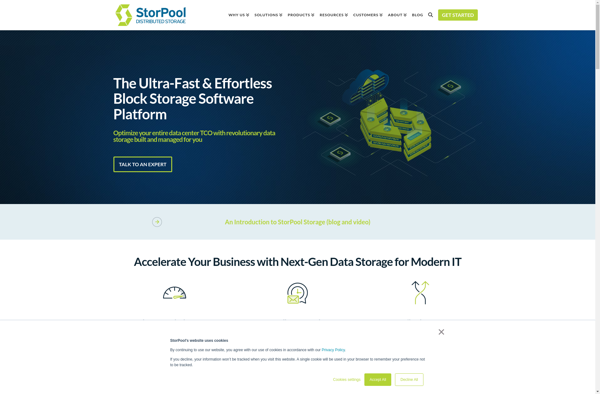
Seaweed FS
SeaweedFS is an open-source, distributed file system designed for storing and serving billions of large files fast and efficiently. It spreads files over many servers, allowing for automatic scaling and parallel streaming of data.Some key features and benefits of SeaweedFS include:Automatic scaling - new servers can be added easily to...
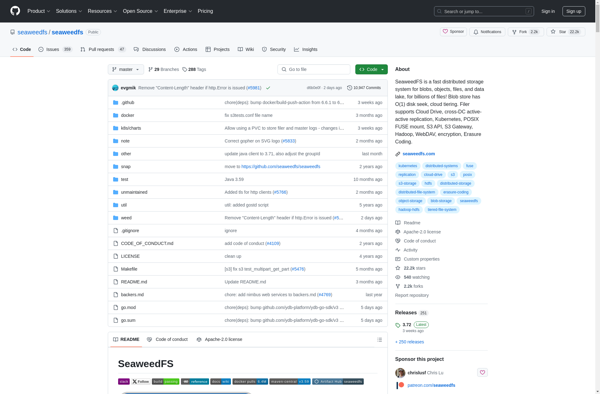
MooseFS
MooseFS is an open-source distributed file system optimized for storing very large data sets while providing high throughput access to the data. Unlike traditional file servers which store files on a single machine, MooseFS splits files into chunks and distributes them across multiple commodity servers. This allows it to scale...
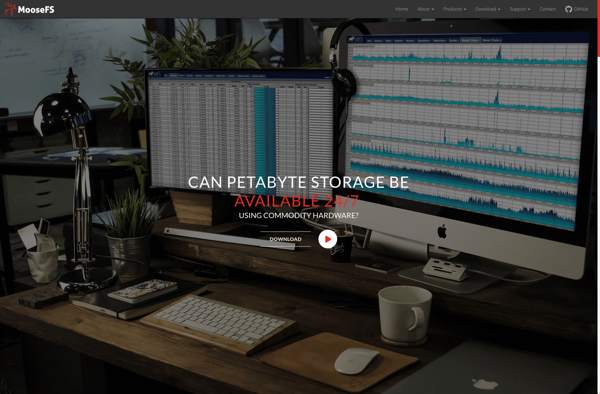
LizardFS
LizardFS is an open-source distributed file system designed for very large storage environments that need to scale to handle exponentially growing amounts of unstructured data. It is optimized to store big data such as multimedia files, VM images, Docker containers, log files, and more.Some key capabilities and benefits of LizardFS...
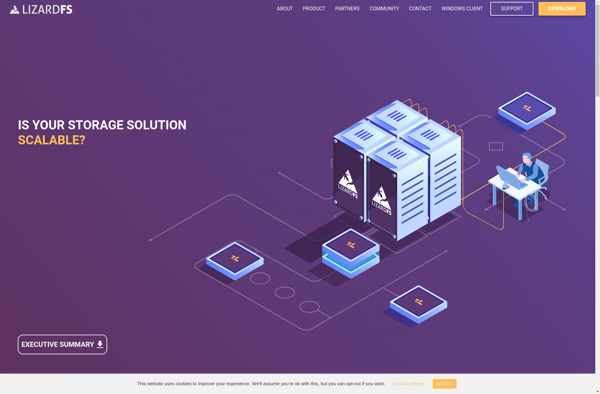
ScaleIO
ScaleIO is an enterprise-grade software-defined storage platform developed by Dell EMC. It provides highly scalable and flexible storage management by abstracting storage resources into unified pools that can scale capacity and performance on demand.Some key capabilities and benefits of ScaleIO include:Creates a virtualized storage pool from existing local or attached...
